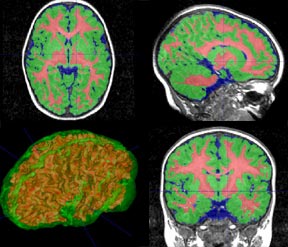Membership and Access
 The UNC Intellectual and Developmental Disabilities Research Center (IDDRC) offers access to a range of Core facilities to approved IDDRC investigators. Gaining access is a two-step process;
an investigator must apply for entry into the IDDRC and must also have an externally funded or pending project to qualify. Early-stage or young investigators in the field of IDD are encouraged
to apply for core services. New projects will be reviewed and approved for core access by the IDDRC Executive Committee.
The UNC Intellectual and Developmental Disabilities Research Center (IDDRC) offers access to a range of Core facilities to approved IDDRC investigators. Gaining access is a two-step process;
an investigator must apply for entry into the IDDRC and must also have an externally funded or pending project to qualify. Early-stage or young investigators in the field of IDD are encouraged
to apply for core services. New projects will be reviewed and approved for core access by the IDDRC Executive Committee.
All projects accessing the IDDRC cores must also be approved for use annually by the Intellectual and Developmental Disabilities Branch (IDDB) of the National Institute of Child Health and Human Development (NICHD).
Criteria for Access to Core Services
-
Relevance to IDD and the mission and themes of the center.
-
Funding/quality:
External funding is a prerequisite for becoming an IDDRC investigator. NIH/NSF grants receive the highest priority. Consideration is given to investigators with a substantial track
record of non-NIH/NSF funding with promise of federal funding. Approximately 10% of projects accessing the Research Cores will have non-federal grant support.
-
Interest/participation
in the IDDRC (for current investigators): includes attendance at monthly seminars and annual Center retreat, and documentation of core use.
-
Available resources
in the cores.
-
Completion of required NICHD annual renewal
for each ongoing project
Procedure
The section describes the process for UNC investigators to apply to become UNC IDDRC members. Please note that IDDRC membership requires external funding or start-up funds that support high-quality
research related to neurodevelopmental disorders, though exceptions may be made for junior investigators without funding and pilot support may also available on an individual basis. While we
recognize these funds are not permanent they are an expectation of approval by NICHD.
The primary expectations of members are that they participate in Center activities when possible. These include an annual, half-day, spring retreat, attendance at our monthly CIDD Investigator Forum
Lecture Series, completion of annual paperwork for our NICHD renewal applications (non-competitive and competitive), and acknowledgement of core support where relevant on publications
(we recommend the following text: This research was supported by the UNC Intellectual and Developmental Disabilities Research Center (IDDRC), P50 HD103573).
Procedures to Apply:
1) Prior to applying, prospective applicants should schedule a meeting with relevant IDDRC research core directors to agree on appropriateness of a given project for core access. These
individuals are:
Clinical Translational Core
Brain Measurement Lab: Aysenil Belger, PhD & Martin Styner, PhD
Participant Registries: Gabriel Dichter, PhD & Renee Clark, MSW
Behavior Navigator: Heather Hazlett, PhD
Preclinical Core
Mouse Behavioral Phenotyping Lab: Sheryl Moy, PhD
Neuroscience Microscopy Facility: Ben Philpot, PhD & Michelle Itano, PhD
Small Animal Imaging Service: Ian Shih, PhD & Martin Styner, PhD
Data Science Core
Bioinformatics: Yun Li, PhD & Jeremy Simon, PhD
Biostatistics: Young Truong, PhD
2) With approval by a core director, please submit to following to Angela Cousins
(angela.cousin@cidd.unc.edu):
•
IDDRC Membership Application
•
IDDRC Core Access Request Form
• CV
You will receive confirmation that your application has been received. Applications will be reviewed by the UNC IDDRC Executive Committee typically within 2-3 months.
Please contact Angela Cousins (
angela.cousin@cidd.unc.edu) with questions about the application process.
